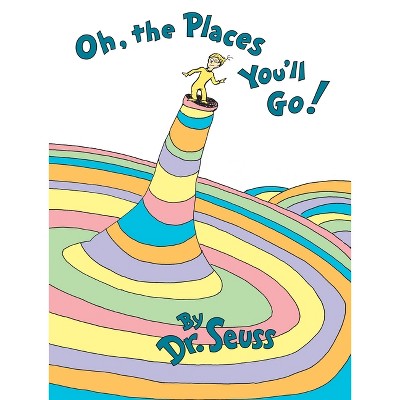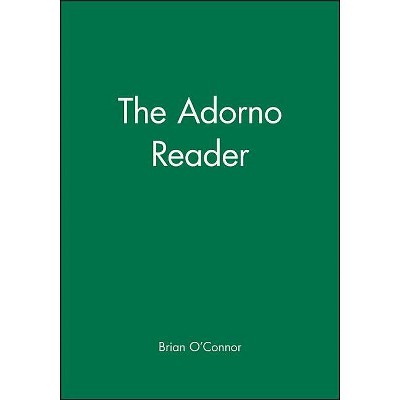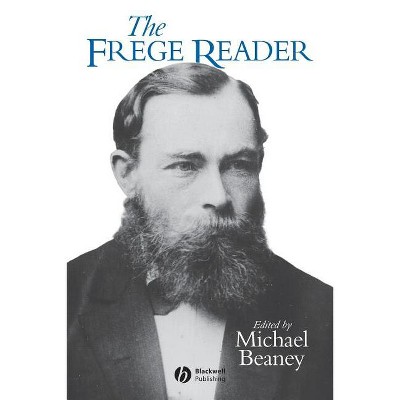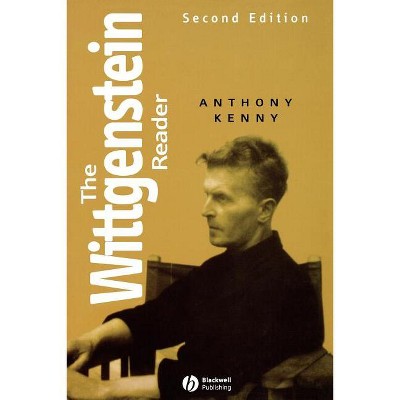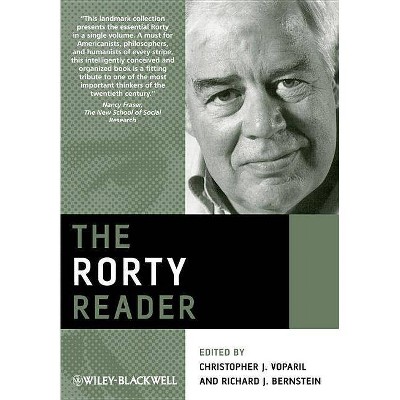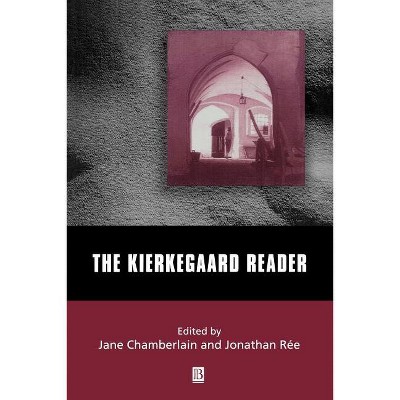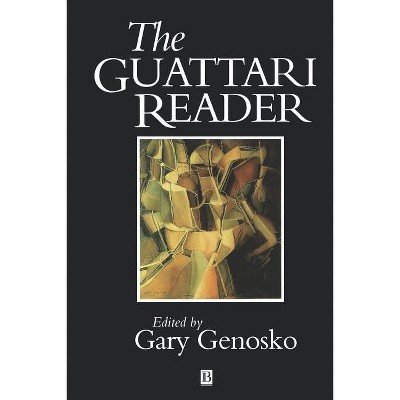Zizek Reader - (Wiley Blackwell Readers) by Elizabeth Wright & Edmond Wright (Paperback)

About this item
Highlights
- The Zizek Reader - which includes a Foreword by Zizek and a new, previously unpublished essay on cyberspace - provides a comprehensive and accessible introduction to the flamboyant work of a figure who has been variously described as 'one of the most arresting, insightful and scandalous thinkers in recent memory' and 'the Giant of Ljubljana'.
- About the Author: Elizabeth Wright is a fellow of Girton College, Cambridge.
- 352 Pages
- Philosophy, History & Surveys
- Series Name: Wiley Blackwell Readers
Description
Book Synopsis
The Zizek Reader - which includes a Foreword by Zizek and a new, previously unpublished essay on cyberspace - provides a comprehensive and accessible introduction to the flamboyant work of a figure who has been variously described as 'one of the most arresting, insightful and scandalous thinkers in recent memory' and 'the Giant of Ljubljana'.- Collects work by one of the most arresting and scandalous thinkers of our time.
- Aids the reader to understand the often complex thinking of both Lacan and Zizek
.
From the Back Cover
The Zizek Reader - which includes a Preface by Zizek and a new, previously unpublished essay on cyberspace - provides a comprehensive and accessible introduction to the flamboyant work of a figure who has been variously described as 'one of the most arresting, insightful and scandalous thinkers in recent memory', 'the Giant of Ljubljana... the best intellectual high since Anti-Oedipus'. His work is an extraordinary mix of Hegel and Hitchcock, Schelling and science fiction, Kant and courtly love, Stalin and Stephen King, all of which is strongly seasoned with Lacanian psychoanalysis.Divided into three parts - Culture, Woman and Philosophy - the Reader not only provides careful explications of the individual extracts within each section but also connects these extracts in a general introduction, mapping the shiftings of Zizek's thought within the Lacanian framework. The essays on woman offer feminism ammunition from unexpected sources, within a reading of Lacan that goes counter to his ambiguous reception by feminists. In fact, at this collection dazzlingly demonstrates, Zizek provides us with one of the most limpid and persuasive readings so far produced of Lacan's difficult thought.
Review Quotes
"Zizek is, in fact, the most formidably brilliant exponent of psychoanalysis, indeed of cultural theory in general, to have emerged in Europe for some decades." Terry Eagleton, University of Oxford
"The Zizek Reader is an excellent introduction to his thinking and contains the first systematic criticism of his work, in editorial introductions to each essay. In his own preface, Zizek makes his gambit explicit by his categorical rejection of the 'hegemonic trends' of today's academia." The Independent
About the Author
Elizabeth Wright is a fellow of Girton College, Cambridge. Her main work is in psychoanalytic literary criticism and she has written extensively in this area. She is author of Psychoanalytic Criticism: Theory in Practise (1984; second edition 1998), Post-modern Brecht: A Representation (1989), and she is also the editor of Feminism and Psychoanalysis: A Critical Dictionary (1992) and co-editor of Coming Out of Feminism? (1998).Edmond Wright is a poet and free-lance philosopher. He has published regularly in the philosophical journals on language, perception, and epistemology. He has written The Horwich Hennets (1976) and The Jester Hennets (1981), and he is the editor of New Representationalisms: Essays in the Philosophy of Perception (1993).
Slavoj Zizek is a Senior Researcher at the Institute for Social Sciences, University of Ljubljana, Slovenia. His most recent works include Tarrying with the Negative: Kant, Hegel and the Critique of Ideology, The Plague of Fantasies, and The Ticklish Subject: A Treatise on Political Ontology. Slavoj Zizek has over the last decade become something of a cultural phenomenon, variously described as 'one of the most arresting, insightful and scandalous thinkers in recent memory', 'the Giant of Ljubljana... the best intellectual high since Anti-Oedipus'. His work is a flamboyant mix of Hegel and Hitchcock, Schelling and science fiction, Kant and Courtly Love, Stalin and Stephen King, all of which is strongly seasoned with lacanian psychoanalysis. As a consequence, it is also one of the most lucid and persuasive readings of Lacan's difficult thought.



